How much can you change your nature? Your personality? Your intelligence? Your life?
This is obviously a hugely important question. The world where our natures are fixed is a vastly different place from the world where we can bend ourselves into any shape.
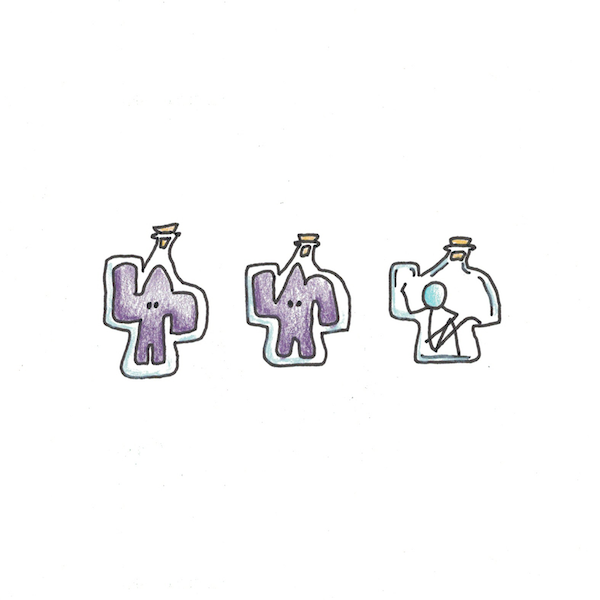
Unfortunately, this is also not a question with easy and obvious answers. Many thinkers disagree and many strands in research seem to point in opposite directions. Yet the stakes are so high, I don’t think it’s possible to dismiss the lack of consensus as a reason to simply ignore the question.
Before digging into the research, and my own thoughts, let’s see why the question matters.
Rigidland and The Malleabiliverse
Imagine two parallel universes, each with decidedly different answers to the question of how much we can change ourselves:
- In Rigidland, your nature is fixed and unchanging. No amount of effort or experience will change you deep down, only in superficial ways such as your memories, knowledge and highly-specific skills. Intelligence, personality and talents are all completely fixed.
- In the Malleabiliverse, in contrast, everything can be molded. Not just the obvious things like acquired skills and knowledge, but whether you’re an introvert, how smart you are, or whether you like heavy metal or jazz.
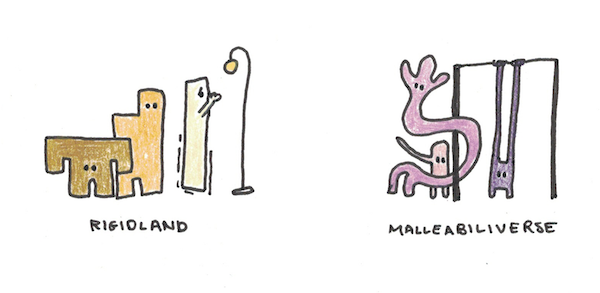
Obviously we live in neither of these realities. We’re neither completely rigid nor malleable, so these places are fictitious. I bring them up, to point out how our practical decisions for our lives would differ in each.
A common mistake is to assume that, regardless of how fixed our natures is, it still makes sense to act as if we had malleable natures. Say you’re scrawny and want to be strong. Even if scrawniness were your permanent state, it would still make sense to try to exercise and lift weights. Put another way, “there’s no harm in trying.”
This isn’t actually true though. Opportunity costs are everywhere. If your nature was fixed, and you would be an excellent scientist but a lousy accountant, and yet you force yourself to “try” to be good at accounting, you’re doing yourself a disservice.
Instead, in Rigidland, the main path to a good life is self-discovery. Everyone wants to figure out what kind of person they already are, in order to choose options that better suit their natures.
In the Malleabiliverse, the good life is won through self-improvement. Since everything is flexible, we should stretch ourselves to whatever would create the best version for our lives.
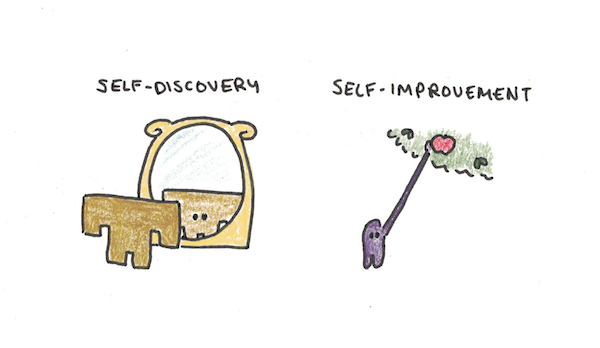
So while we clearly live in some hybrid of Rigidland and Malleabiliverse, what’s less clear is how far we sit between either extreme. Are we 90% Rigidland and only 10% Malleabiliverse? Or does the world we live in get closer to 50/50? Does the trait matter? Perhaps you believe a person’s sexual orientation is mostly fixed, but their talent for math isn’t?
Arguments in Favor of Rigidity
Now that we see the stakes, and the practical consequences of this decision, let’s look at some of the varying perspectives pointing in either direction.
One of the strongest areas of research in favor of the (relative) rigidity of our natures is twin research.
Twins, it should be remembered, come in two types. Identical twins occur when a fertilized egg splits in two, thus making two individuals with identical genes. Fraternal twins, in contrast, occur when two eggs are separately fertilized, resulting in two individuals that, despite being the same age, are otherwise no more closely related than any two brothers or sisters.
From these we get a natural experiment. Twins typically get the same home environment, but because of the difference in fraternal/identical twins’ genes, they have different amounts of genetic relatedness. Using some statistical razzle-dazzle, you can see how much this genetic difference accounts for anything you want to measure: height, intelligence, personality and more.
Through these experiments (including the harder-to-do studies which involve identical and fraternal twins reared apart), we’ve learned that most parts of our nature are at least partly heritable. Sometimes that heritability is quite high—intelligence may be as high as 80% due to one’s genes. Fifty percent heritability is a fairly standard number that comes up in many domains, from personality to sexual orientation.
In contrast, shared environment tends to come out as having quite a negligible effect. Which means if we contrast nature and nurture—the result isn’t even close. Nature wins by a mile.
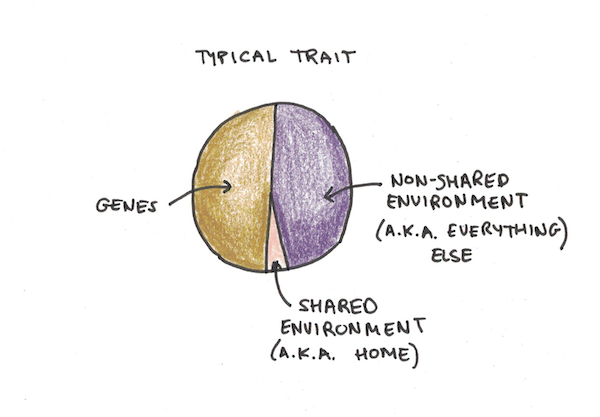
These arguments weigh in favor of rigidity. But it should be noted that a trait being heritable isn’t the same as being fixed. Hair color, for instance, is highly heritable, but totally malleable—just go to the store and buy some dye.
Similarly, I think there might be an important philosophical distinction between inheriting different capabilities versus different preferences. Imagine that chess ability is highly heritable, but the mechanism is that some people find chess fascinating and some find it super boring. This seems to be a different world than one in which everyone likes chess equally, but only some people are able to get good at it.
Arguments in Favor of Malleability
While genetic research is often seen as a vote in favor of us being citizens of Near Rigidland, there is contrary evidence.
A simple one is just the stunning cultural diversity we witness. Joseph Henrich popularized the notion of WEIRD (Western, Educated, Industrial, Rich and Democratic) psychology. The idea that, because most psychology studies are done using Western undergraduates, we think we’re measuring universal human functioning, but we may just be measuring culturally-specific ones.
Personality shows substantial heritability. But research not only finds cross-cultural variation, but even the basic five-factor model we use to assess personality may only apply to WEIRD cultures. They propose that, in more complex societies, there are more personality “niches” where one can be successful. In smaller groups with less specialization, personalities have less dimensionality as there are fewer successful ways to be different.
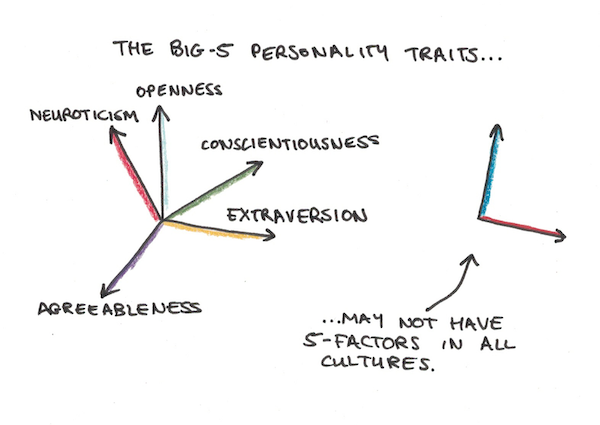
That cultures can vary dramatically seems strong evidence against highly fixed natures. If we were mostly fixed, how could culture imprint vastly different psychologies, beliefs and even personalities?
Another observation that votes in favor of malleability is to note that a world in which we are fixed, ought to have a lot of people who are highly multi-talented. A mostly-malleable world, in contrast, would be full of specialists. Our world (with some notable exceptions) appears to be much closer to the latter, suggesting a much stronger role for acquired ability.
The argument here is simple. If our abilities were fixed, then the amount of work required to get good at something is sharply reduced—you’re already really talented. As long as different abilities aren’t mutually exclusive (and the evidence is the opposite—most abilities are correlated), then we’d expect some people to be good at lots of different things, just through chance.
In contrast, if we live in a world where ability is mostly hard-won through practice, then we ought to see more specialization as people require decades of specific practice to do well in a field.
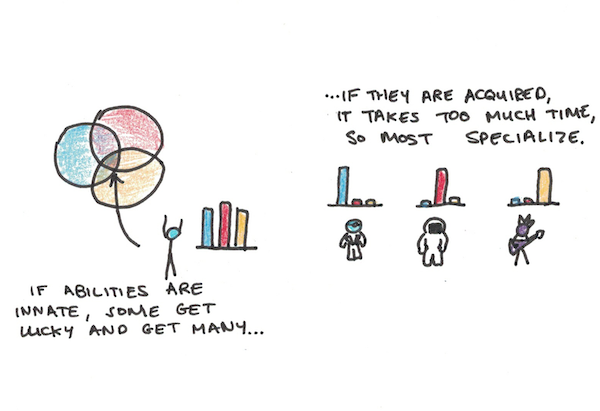
Feedback loops are another source of malleability evidence. Motivation depends on positive feedback. Albert Bandura’s concept of self-efficacy can lead to a pattern where you experience direct performance experience, which causes you to feel more confident, set higher goals, and get more direct performance experience. Robert Eisenberg’s theory of learned industriousness offers another example, where the expenditure of effort becomes easier if you get rewarded for your efforts.
Ironically, this last type of feedback would tend to exaggerate the heritability of some traits. If you start off with a small, fixed advantage towards math, for instance, this might snowball as you gain more confidence and find it more rewarding than alternatives. This might mean, as an adult, that you’re much, much better at math than you would have been without it.
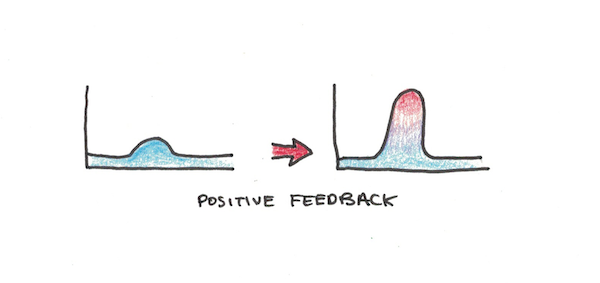
My Thoughts on Rigidity
My own best guess is that many of our attributes vary in how rigid they are. Highly general attributes are likely more rigid than specific ones. General intelligence is more rigid than whether you speak a second language or are good at physics, for instance.
In some cases, the rigidity may be a static property of our brains. Changes in the coding for D2 dopamine receptors may cause some people to be more likely to succumb to addiction than others. Until we get the technology to change our genes, this aspect is likely to be fixed.
In other cases, the rigidity may be dynamical—a combination of a tendency reinforced by the environment. Take my math example earlier—having a slight fixed advantage in math may translate to a large advantage through positive feedback loops. This could be overcome, let’s say, by a culture that really prizes studying hard for math.
I tend to believe that a lot of rigidity is dynamical, so the culture and values you internalize may tip the scale. Thus I believe in the power of beliefs, values and goals, even if I don’t take the other extreme which argues that all people are identical.
How Should You Live Your Life?
Remember, in Rigidland the good life is all about self-discovery and in the Malleabiliverse, it’s all about self-improvement. Given that we live between these two extremes, both self-discovery and self-improvement matter.
Self-discovery matters because the goals you set, and the life philosophy you ascribe to, ought to be informed by the parts of yourself that aren’t likely to change much. Finding the right jobs, partners and even life philosophies that match the fixed parts of our natures will make us happier.
Self-improvement matters because many of the specifics we care about in our life can be modified. Some of the general traits we have are also probably mutable, but the process might unfold over decades or more. Research using quasi-experimental designs finds that each year of education results in 1-5 points in higher IQ.
Self-improvement is also important because it leads to self-discovery. By experimenting and striving you discover things that you can’t know with self-reflection. Thus the more you do, the more you learn about yourself and get a clearer picture of what kind of person you are. I think younger people ought to lean more heavily on self-improvement, simply because it leads to more self-discovery in the long-run anyways.
In the end, self-improvement and self-discovery work together. Striving for things allows you to learn about yourself. Knowing which opportunities fit allows you to grow best.
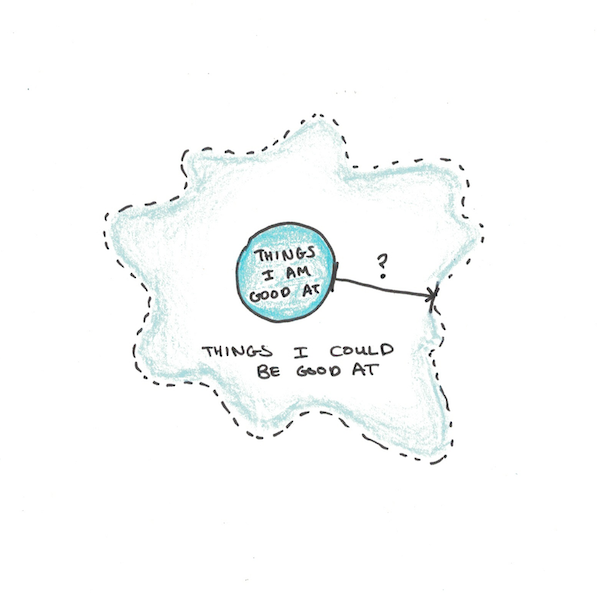


 I'm a Wall Street Journal bestselling author, podcast host, computer programmer and an avid reader. Since 2006, I've published weekly essays on this website to help people like you learn and think better. My work has been featured in The New York Times, BBC, TEDx, Pocket, Business Insider and more. I don't promise I have all the answers, just a place to start.
I'm a Wall Street Journal bestselling author, podcast host, computer programmer and an avid reader. Since 2006, I've published weekly essays on this website to help people like you learn and think better. My work has been featured in The New York Times, BBC, TEDx, Pocket, Business Insider and more. I don't promise I have all the answers, just a place to start.